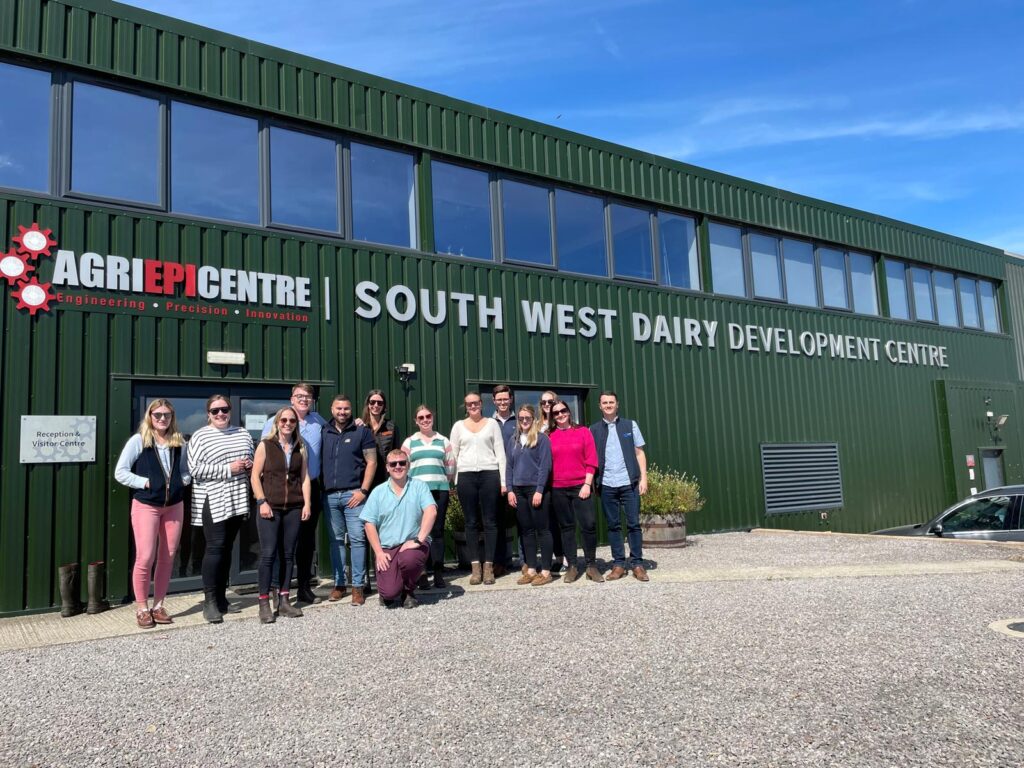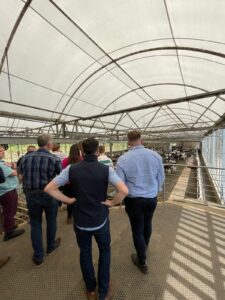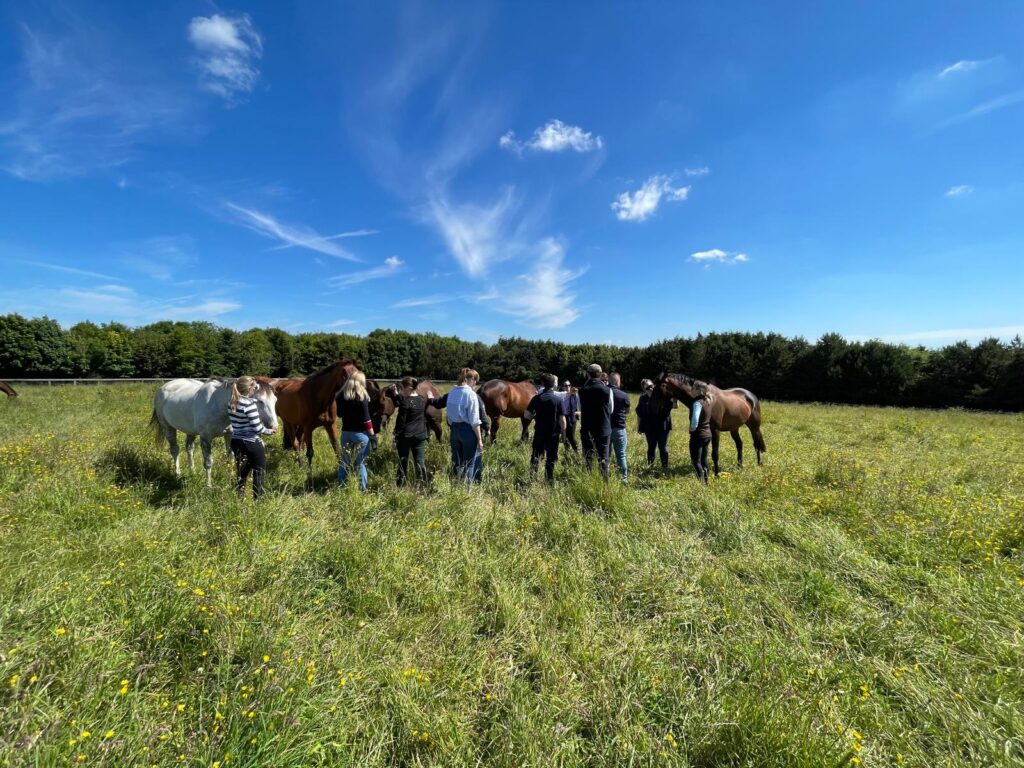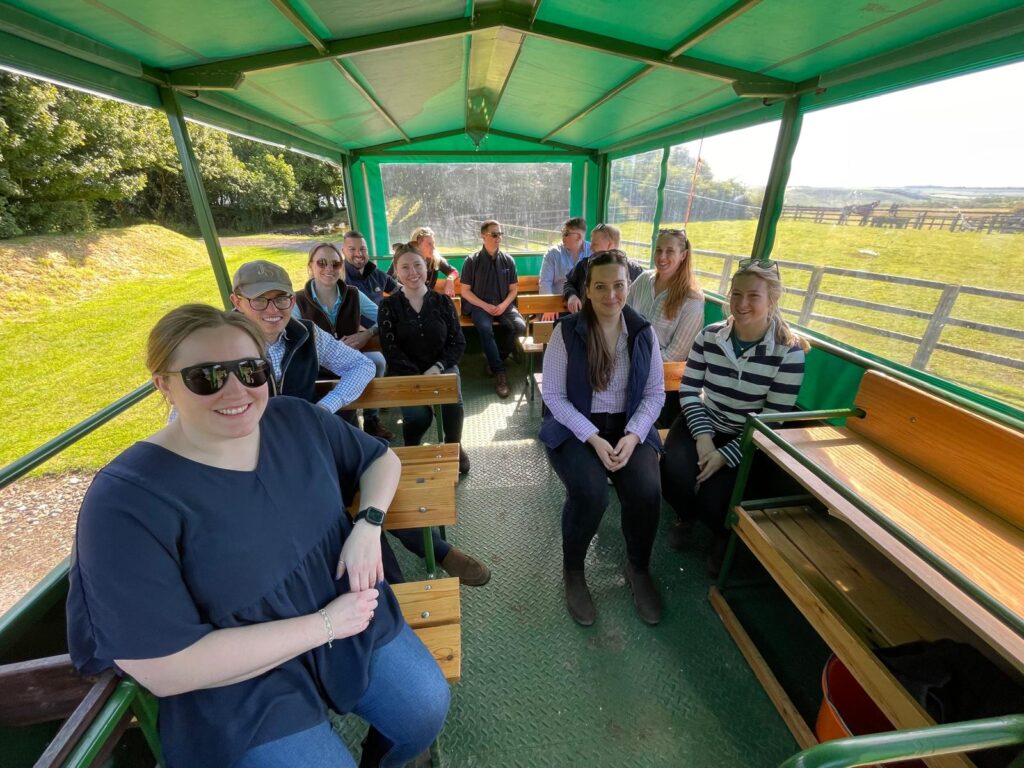A group of 15 Young NPA (YNPA) members travelled to Wiltshire and Somerset for the YNPA Summer Event on June 19 and 20. NPA senior policy adviser Katie Jarvis summarises the highlights of two days of great visits, with glorious sunshine making it all the more special.
Day one started with a visit to the Pilgrim’s factory in Corsham, where the company produces cooked meats for Waitrose and Coop, including sliced hams, slow-cooked ribs and pork belly, and other cooked products from all other meat sectors.
After an introductory chat, we were split into small groups, donned our PPE and set off on a tour of the factory. As always with factory tours, minds were blown by the scale and speed of the production lines which produce some of the most popular products sold by the retailers.
We had a demonstration from a skilled butcher, who made de-boning and cutting a leg of ham look incredibly easy despite it being anything but, before heading to the vast tumblers, ovens and fridges where several tonnes of product is prepared and stored each week. It was truly a fascinating experience and has opened all of our eyes as to how cooked products are developed.
Agri-EPI centre
 After a delicious lunch we left Pilgrim’s and headed for the Agri-EPI Centre South West Dairy Development Centre in Frome. One of the draws of the YNPA Summer Event is the exposure it gives members of the agricultural and rural world outside of pigs, and we certainly took a lot away from this visit.
After a delicious lunch we left Pilgrim’s and headed for the Agri-EPI Centre South West Dairy Development Centre in Frome. One of the draws of the YNPA Summer Event is the exposure it gives members of the agricultural and rural world outside of pigs, and we certainly took a lot away from this visit.
 The meeting room of the centre is surrounded by glass, through which we could see the herd of 180 cows calmly snoozing. Although it is a research centre, hosting commercial and R&D projects, the farm also has to be productive and has to pay for itself as a farming business. This was visible in the focus on cow health and welfare, leading to greater longevity and yields, with each cow on average producing 9000 litres of milk a year.
The meeting room of the centre is surrounded by glass, through which we could see the herd of 180 cows calmly snoozing. Although it is a research centre, hosting commercial and R&D projects, the farm also has to be productive and has to pay for itself as a farming business. This was visible in the focus on cow health and welfare, leading to greater longevity and yields, with each cow on average producing 9000 litres of milk a year.
We heard about several of the projects currently running at the centre, including one that uses footbath cameras to monitor mobility and lameness, and activity monitors used to detect early changes in a cow’s behaviour, temperature, water intake, rumination rate and fertility. Environmental products include a laser which measures methane emissions in the fields, and soil sensors reporting on soil moisture and temperature.
While a lot of the equipment is not commercially available, hopefully it will develop further and the pig sector will be able to benefit from these early trials. As in the pig sector, technology and data will be the key to improved productivity on farm.
On the gallops
After a meal and a night in Swindon, the next morning we headed to the yard of racehorse trainer Neil King, situated in a stunning position on top of ridge next to Barbury Castle, with gallops running through the narrow valleys below.
 Neil and his wife Claire were incredibly welcoming and treated us all to sausage and bacon rolls while they told us about the business, before we set off for a brilliant morning touring the yard and viewing horses out on the gallops.
Neil and his wife Claire were incredibly welcoming and treated us all to sausage and bacon rolls while they told us about the business, before we set off for a brilliant morning touring the yard and viewing horses out on the gallops.
We couldn’t have had a better day to visit, with glorious weather allowing us to spend time with some of the horses who are turned out for their summer holidays, and watching from the side of the gallops with Neil where we could see his attention to detail and love of the horses.
Like farming, success in horse racing takes time, investment and a real passion for the job. Despite there being some significant differences between pigs and racehorses, the group learned that with any business involving animals, health, welfare and top-class staff are the key to success.
It was a fantastic two days, so a huge thank you to all of our generous hosts who made it such a successful event.




